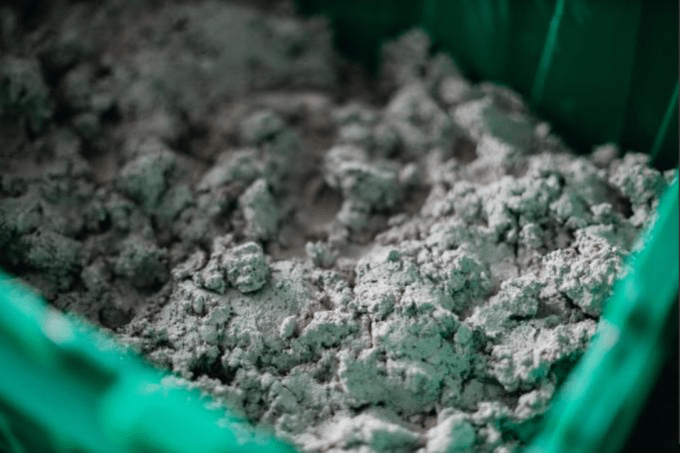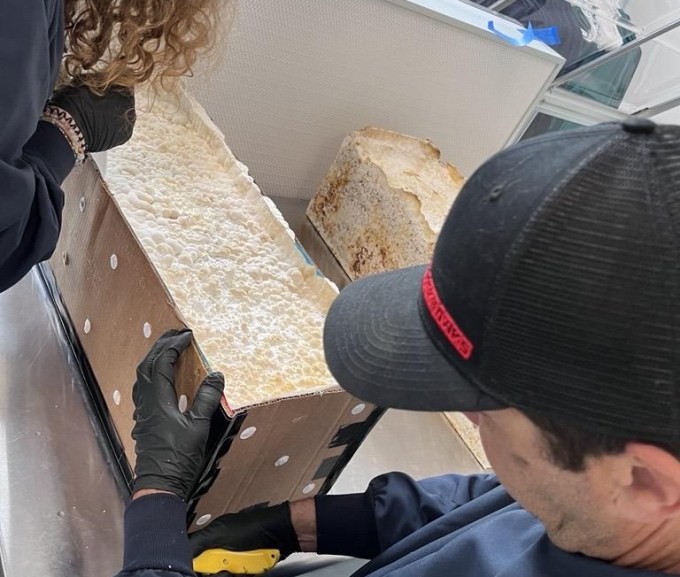Usually, when something starts to rot, it gets pitched in the trash. But Joanne Rodriguez wants to turn the concept of rot on its head by growing fungus on trash to turn it into something better.
“We train mushrooms to eat trash and create renewable, bio-based raw materials,” she told TechCrunch.
Rodriguez is the founder and CEO of Mycocycle, one of a fresh crop of startups using fungi, nature’s recyclers, to create plastic-like polymers for a post-fossil fuel economy. Today, nearly all plastics are made from oil and gas, and they are responsible for about 3.4% of all greenhouse gas emissions, according to the OECD.
“We want to be able to compete with the 3Ms and BASFs and Dows of the world,” Rodriguez said.
That’s no small goal. Plastics are seemingly everywhere, from food packaging to building materials. Thanks to that ubiquity, the global plastics industry is worth $624 billion, according to Grand View Research.
Mycocycle hopes not only to capture a portion of that market, but also inject its vision of circularity by using its fungi to literally consume the plastics its competition produces.
The company has turned to a group of fungi known as white-rot mushrooms. In nature, fungi tend to thrive on things like dead leaves and wood, but Mycocycle’s mushrooms have been chosen for their ability to break down materials produced using oil and gas. The startup uses natural selection to find those best fit for the job, choosing not to genetically modify the strains. “I drew that line pretty early on,” Rodriguez said.

When the fungi get to work, they decompose the waste organic matter by suffusing it with their root-like hyphae. Though the hyphae appear similar to the roots of plants, they aren’t made of cellulose like a plant’s fibers. Instead, they’re made of chitin, the same stuff that insects use to build their exoskeletons. As those hyphae come into contact with carbon-based molecules, they break them down, using the food source to grow and extend their reach.
Rodriguez said that Mycocycle’s fungi can work on a wide range of waste, including paper, rubber and nylon. In a recent commercial demonstration, the startup grew its fungi on scrap drywall leftover from the construction of a Meta data center. The startup delivered one of its bio-processors to a nearby dumpster company, which crushed the drywall and dumped it into the processor along with the fungi from Mycocycle. The bio-processor then maintained the fungi’s optimal temperature, between 60 and 80 degrees F, for about two weeks.
Once a cycle is complete, Mycocycle kills the fungi to ensure they don’t keep growing. “We don’t want to put mold back into our building,” Rodriguez said. The end result is a product that can be sold, rather than waste that costs money to dispose of.
The resulting material can be used in a range of products, including insulation, acoustic panels for sound control, and filler to bulk up things like concrete. (The recycled material from the Meta project will likely become filler since fungi only consume the paper that covers the drywall, not the gypsum it encases.) The fungi don’t consume all the rubber, but rather encases it in a web of mycelia, all of which Rodriguez said Mycocycle can process once more when it reaches the end of its life.

Mycoycle, which Rodriguez founded in 2018, is currently working to refine its process for recycling crumb rubber, the waste produced from old tires. It’s a massive potential market, with the U.S. producing about 280 million every year.
To continue its R&D and commercialization efforts, the company raised a $3.6 million seed extension, the company told TechCrunch exclusively. The round was led by Closed Loop Partners and included investments from the Illinois Invent Fund, the Telus Pollinator Fund for Good and U.S. Venture.
Mycocycle will bring in over $1 million in revenue this year, Rodriguez said. “We’ll be margin positive.” The crumb rubber processing part of the business is perhaps the most promising, she added.
“One of the strategic investors in this round is looking specifically at this rubber market at scale for the exact reason that we’ve recycled tires the same way for 40 years,” she said. “They see the risk, and they see the opportunity.”










